In Focus This Week
EAC Releases 2024 Election Administration and Voting Survey (EAVS) Report
Release marks 20th anniversary of the biennial report
The U.S. Election Assistance Commission (EAC) recently released the 2024 Election Administration and Voting Survey (EAVS) report.
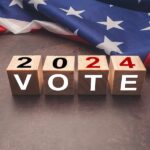 For more than 20 years, the EAC has conducted the EAVS following each federal general election. In May, the EAC released a report on “The History, Evolution, and Future Directions of the Election Administration and Voting Survey (EAVS)” and comprehensive time series data files covering EAVS data from 2004 to 2022.
For more than 20 years, the EAC has conducted the EAVS following each federal general election. In May, the EAC released a report on “The History, Evolution, and Future Directions of the Election Administration and Voting Survey (EAVS)” and comprehensive time series data files covering EAVS data from 2004 to 2022.
Prior to 2014, this data was reported in three different reports – the National Voter Registration Act (NVRA) report, the Uniformed and Overseas Citizens Absentee Voting Act (UOCAVA) report, and the Election Day Survey/EAVS. Since 2008, this project has included a separate survey, the Election Administration Policy Survey (Policy Survey), that gathers information about state election laws, policies, and practices.
The survey covers topics such as voter participation, voter registration, voter list maintenance, and election technology, as well as early and Election Day polling place operations for the general election. The 2024 results reflect a 100% response rate from all 50 states, five U.S. territories, and the District of Columbia.
In 2024, nearly 65% of the citizen voting age population participated in the general election, resulting in more than 158 million counted ballots. Over 72% of voters cast their votes in person at a voting location, either before Election Day or on Election Day. Over 98% of election jurisdictions used voting equipment that has voters mark a paper ballot or produces an auditable paper record of voters’ ballot preferences.
“The EAVS gathers data directly from those who manage our elections: state and local election officials. This sets the EAVS apart and further highlights why it is the most comprehensive review of the administration of elections nationwide. By providing the national story of the 2024 election, the EAVS offers policymakers and election stakeholders a better understanding of election trends and the challenges election officials navigate across the country,” said EAC Chairman Donald Palmer, Vice Chair Thomas Hicks, Commissioner Christy McCormick, and Commissioner Ben Hovland in a joint statement. “Without the participation of thousands of election officials reflected in the EAVS report, we would not have the detailed picture of the general election that we do. Their dedication to serving voters and incredible work throughout 2024 resulted in professionally run elections.”
The 2024 EAVS Report and datasets, as well as previous EAVS reports, are available here. Other key findings from the 2024 EAVS include:
Voter Registration
- More than 211 million citizens were active registered voters for the 2024 general election — 86.6% of the citizen voting age population.
- State motor vehicle offices and automatic voter registration were the two most used methods of voter registration. Motor vehicle offices accounted for 32.2% of transactions processed. Automatic voter registration was used for 26.4% of transactions.
- States reported sending nearly 40 million confirmation notices as part of efforts to maintain accurate voter rolls. Accurate voter list maintenance is an essential part of a well-functioning voter registration system — having accurate lists helps reduce costs, decreases wait times, and ensures that only voters eligible to vote can do so. Confirmation notices help ensure that voters are not removed in error.
Voting Methods
- In-person voting continued to be the most common voting method in the 2024 general election, with over 70% of voters choosing to cast their ballots in person. And 35.2% voted in person before Election Day, while 37.4% voted in person on Election Day.
- Voting by mail decreased to about 30% of total ballots cast in the 2024 election. Despite this shift, election officials continue to implement security measures to ensure this option is secure. Mail ballots are protected by state laws that determine how they must be filled out and returned by the voter, and then verified by election officials before they are counted.
- Over 98% of election jurisdictions used voting equipment that has voters mark a paper ballot or produces an auditable paper record of voters’ ballot preferences. The percentage of jurisdictions that reported using voting systems without a verified paper trail has decreased significantly since the 2022 general election. In the 2024 EAVS, only 80 jurisdictions in three states reported using these systems, with just one jurisdiction reporting only using this type of voting system.
Voting Systems and Election Supporting Technology
- Nearly 93% of states, the territories, and DC require voting system testing and certification either by statute or through a formal administrative rule or guidance. Some of these states require full EAC certification, while others require testing to federal standards or testing by a federally accredited laboratory.
- Nearly 40% of jurisdictions used electronic poll books to assist with voting, which was the highest percentage reported to date in the EAVS. Given the rise in use, the EAC recently established a Voluntary Electronic Poll Book Certification Program to evaluate and test the security, accessibility, and usability of electronic poll books across the country.
Poll Workers
- While 47.9% of jurisdictions reported facing significant challenges in recruiting and retaining poll workers, recruitment has become easier since the last presidential election. More than 770,000 individuals served as poll workers for the 2024 general election, the majority of which were over 61 years old.On July 9, the EAC will host “2025 EAC Data Summit: Election Administration by the Numbers” at the Massachusetts Institute of Technology in Cambridge, MA. During the in-person public event, election officials, academics, and other key stakeholders will participate in panel discussions on election administration and related innovative and groundbreaking data and research. Topics will include the results of the 2024 EAVS, election funding, voter list maintenance, workforce development, and more. Information on how to register to attend in person or watch the livestreamed event is available on the event page.
Other resources, such as state-specific summaries of election administration and voting data, will be available later this year.
Election Data Summit
Following the release of EAVS, the EAC held an Election Data Summit hosted by the Massachusetts Institute of Technology in Cambridge.
The day-long summit featured panels on the EAVS as well as rural election administration, voter list maintenance, funding elections, workforce development and data.
During the opening panel, Raymond Williams, director of research, U.S. Election Assistance Commission and Lindsay Nielson and Kiersten Downs, senior researchers for Fors Marsh talked about the 2024 EAVS results, but also about the future of the EAVS and how they are working to make it better for state and local elections officials to complete.
“We are currently instituting some working groups that are looking at different sections of the EAVS to make adjustments and we’re also talking about ways we can improve the data quality of the EAVS,” Williams explained. “Whether that’s using public data elections offices are putting out and other ways where we could potentially pre-fill the data which could potentially ease the survey burden for the long haul.”
According to Downs with Fors Marsh, there have been 15 working group sessions with 38 election officials so far and some vendors were in there as well. She noted that one of the biggest complaints about the EAVS process is that a one-size fits all survey really doesn’t fit all because there is such a variation in election administration from state to state and even locality to locality. She said that varying terminology was one particular sticking point.
“We’ve made great strides on improving [the survey] based on feedback,” Downs said. “And the feedback is ongoing.”
Local Election Official Survey
Brennan Center releases 2025 survey
60% of local election officials concerned about cuts to election security
This week, The Brennan Center released their 2025 Local Election Officials Survey. The 2025 poll was 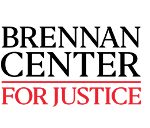 administered online by the Brennan Center between April 15 and May 17, 2025, with 858 local election officials responding.
administered online by the Brennan Center between April 15 and May 17, 2025, with 858 local election officials responding.
The Brennan Center sent email invitations to participate in the online survey to a list of 8,491 local election officials, created with the assistance of the U.S. Vote Foundation. Data was weighted on region and jurisdiction size to ensure it represents the universe of local election officials. What follows are some of the key findings.
Federal cutbacks
- 60% of local election officials are concerned about federal cuts to election security services.
- 61% of local election officials are specifically concerned about cuts to services provided by the Cybersecurity and Infrastructure Security Agency (CISA).
- 87% of local election officials say it’s important for state and local government to provide additional resources to make up for cut funds and support.
Background: In February, the Department of Homeland Security froze election security services offered to local election officials by the Cybersecurity Infrastructure and Security Agency. That included cutting funding for the Election Infrastructure Information Analysis Center which helped local election officials share information about threats to elections, and cutting staff that helped local election officials with physical security assessments of their offices and with bolstering cybersecurity.
Interference in election administration
- 59% of local election officials are concerned about political leaders engaging in efforts to interfere with how they or fellow election officials around the country do their jobs in future elections.
- 46% of local election officials are concerned about politically motivated investigations of themselves or other election officials in future elections.
Threats, harassment, and abuse
- 38% of local election officials report experiencing threats, harassment, or abuse because of their job.
- 52% of local election officials are concerned about the safety of their colleagues and/or staff in future elections.
The survey also found that 81% of local election officials are concerned about false information about elections spreading on social media in future elections.
electionline Daily News Email
 What’s the best part of waking up? electionline Daily News in your inbox of course so be sure to sign up for your daily dose.
What’s the best part of waking up? electionline Daily News in your inbox of course so be sure to sign up for your daily dose.
Each morning you’ll receive the top headlines of the day, plus a listing of states featured in that day’s news round up.
To sign up, simply visit our site and provide us with your email and you’ll begin receiving the news in your inbox each morning.
We Google so you don’t have to!
Election News This Week
 Federal Update: A July 2 article in The New York Times reports that senior Justice Department officials are exploring whether they can bring criminal charges against state or local election officials if the Administration determines they have not sufficiently safeguarded their computer systems. The department’s effort, which is still in its early stages, is not based on new evidence, data or legal authority, according to the people, speaking on the condition of anonymity to describe internal discussions. Instead, it is driven by the unsubstantiated argument made by many in the Administration that American elections are easy prey to voter fraud and foreign manipulation, these people said. “The tactics we’re seeing out of DOJ right now are building on what we’ve seen from anti-democracy groups for years,” said Dax Goldstein, the program director of election protection at the States United Democracy Center, a nonprofit organization. “They’re rooted in the same lies about elections, and they’re all meant to create noise and fear and concerns about issues with our elections that just don’t exist. Our elections are safe and secure, and election officials are working to keep them that way.” In other DOJ news, the department sent a letter to Pennsylvania Secretary of the Commonwealth Al Schmidt asking for a wide range of information on how it manages voter registration and voter rolls, as part of what it calls “nationwide efforts” to monitor compliance with a key federal voting statute. The department asked for 14 categories of information on the state’s voter registration activities, including how voters are added to and removed from the voter roll, and how the state prevents unauthorized access to its system. Votebeat and Spotlight PA obtained a copy of the letter, which was signed by Maureen Riordan, the new acting chief of the voting section in the Justice Department’s Civil Rights Division. In a letter addressed to leaders of the Cybersecurity and Infrastructure Security Agency, Democratic lawmakers demanded to know why the agency hasn’t responded to their recent inquiries about the level of support it’s providing to state and local election offices. Ranking members Rep. Joseph D. Morelle and Sen. Alex Padilla wrote that they’re seeking “urgent updates” to the status of numerous election security policies and programs offered by CISA under previous administrations. The letter, which is addressed to CISA acting Director Madhu Gottumukkala and Mona Harrington, assistant director of CISA’s National Risk Management Center, demands a “comprehensive briefing” on CISA’s operations and personnel before July 21. “CISA’s repeated failure to respond to our requests for information while undertaking a significant reshaping of the agency’s personnel and mission is unacceptable,” the letter reads. “We remain deeply troubled by the lack of information CISA has provided to congressional oversight committees and the lack of substantive responses to our questions.” Citing the Supreme Court’s recent ruling curtailing nationwide injunctions, the Department of Justice (DOJ) asked a federal judge to weaken part of a previous court order against President Donald Trump’s elections executive order. The DOJ asked District Judge Denise Casper July 3 to amend the portion of her previous court order that barred the government from enforcing Section 2d of Trump’s executive order. That section of the Trump order requires public assistance agencies to assess citizenship before providing voter registration forms to enrollees. The department argued that, to avoid running afoul of Trump v. CASA, in which SCOTUS banned universal injunctions, Casper must limit the part of her court order relating to Section 2d only to the 19 states, all Democratic-led, challenging Trump’s executive order.
Federal Update: A July 2 article in The New York Times reports that senior Justice Department officials are exploring whether they can bring criminal charges against state or local election officials if the Administration determines they have not sufficiently safeguarded their computer systems. The department’s effort, which is still in its early stages, is not based on new evidence, data or legal authority, according to the people, speaking on the condition of anonymity to describe internal discussions. Instead, it is driven by the unsubstantiated argument made by many in the Administration that American elections are easy prey to voter fraud and foreign manipulation, these people said. “The tactics we’re seeing out of DOJ right now are building on what we’ve seen from anti-democracy groups for years,” said Dax Goldstein, the program director of election protection at the States United Democracy Center, a nonprofit organization. “They’re rooted in the same lies about elections, and they’re all meant to create noise and fear and concerns about issues with our elections that just don’t exist. Our elections are safe and secure, and election officials are working to keep them that way.” In other DOJ news, the department sent a letter to Pennsylvania Secretary of the Commonwealth Al Schmidt asking for a wide range of information on how it manages voter registration and voter rolls, as part of what it calls “nationwide efforts” to monitor compliance with a key federal voting statute. The department asked for 14 categories of information on the state’s voter registration activities, including how voters are added to and removed from the voter roll, and how the state prevents unauthorized access to its system. Votebeat and Spotlight PA obtained a copy of the letter, which was signed by Maureen Riordan, the new acting chief of the voting section in the Justice Department’s Civil Rights Division. In a letter addressed to leaders of the Cybersecurity and Infrastructure Security Agency, Democratic lawmakers demanded to know why the agency hasn’t responded to their recent inquiries about the level of support it’s providing to state and local election offices. Ranking members Rep. Joseph D. Morelle and Sen. Alex Padilla wrote that they’re seeking “urgent updates” to the status of numerous election security policies and programs offered by CISA under previous administrations. The letter, which is addressed to CISA acting Director Madhu Gottumukkala and Mona Harrington, assistant director of CISA’s National Risk Management Center, demands a “comprehensive briefing” on CISA’s operations and personnel before July 21. “CISA’s repeated failure to respond to our requests for information while undertaking a significant reshaping of the agency’s personnel and mission is unacceptable,” the letter reads. “We remain deeply troubled by the lack of information CISA has provided to congressional oversight committees and the lack of substantive responses to our questions.” Citing the Supreme Court’s recent ruling curtailing nationwide injunctions, the Department of Justice (DOJ) asked a federal judge to weaken part of a previous court order against President Donald Trump’s elections executive order. The DOJ asked District Judge Denise Casper July 3 to amend the portion of her previous court order that barred the government from enforcing Section 2d of Trump’s executive order. That section of the Trump order requires public assistance agencies to assess citizenship before providing voter registration forms to enrollees. The department argued that, to avoid running afoul of Trump v. CASA, in which SCOTUS banned universal injunctions, Casper must limit the part of her court order relating to Section 2d only to the 19 states, all Democratic-led, challenging Trump’s executive order.
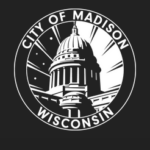 News from Madison: According to a draft report released this week by the Wisconsin Election Commission, former Madison Clerk Maribeth Witzel-Behl violated multiple state laws when her office failed to count nearly 200 absentee ballots in the 2024 presidential election. According to Votebeat, Witzel-Behl, who was put on leave by the city after the error and then resigned, broke state law by failing to supervise absentee ballot handling, neglecting post-election processes, and by not training poll workers to check the bags used to transport ballots, the commission concluded.“There is no evidence that the City Clerk took any steps to investigate the uncounted ballots once they were brought to her attention,” the commission wrote. “The evidence demonstrates that the City Clerk began her vacation on November 13 and then had little to do with the supervision of her office until almost a month later.” The draft report follows a months-long investigation into the 193 ballots that went missing on Election Day.
News from Madison: According to a draft report released this week by the Wisconsin Election Commission, former Madison Clerk Maribeth Witzel-Behl violated multiple state laws when her office failed to count nearly 200 absentee ballots in the 2024 presidential election. According to Votebeat, Witzel-Behl, who was put on leave by the city after the error and then resigned, broke state law by failing to supervise absentee ballot handling, neglecting post-election processes, and by not training poll workers to check the bags used to transport ballots, the commission concluded.“There is no evidence that the City Clerk took any steps to investigate the uncounted ballots once they were brought to her attention,” the commission wrote. “The evidence demonstrates that the City Clerk began her vacation on November 13 and then had little to do with the supervision of her office until almost a month later.” The draft report follows a months-long investigation into the 193 ballots that went missing on Election Day.
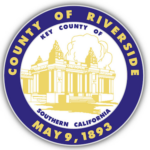 Bomb Threats: On Election Day 2024, multiple bomb threats were called into elections offices nationwide. While nothing materialized from those threats, a review in Riverside County, California showed how the threats impacted that county and where there is room for improvement moving forward. A bomb threat at the county’s ballot processing facility during the November election caught workers off guard and led to a “serious security breach,” according to a civil grand jury report scrutinizing the county Registrar of Voters. The report, the end product of an in-depth investigation into the county’s election procedures, did not allege fraud or malfeasance in the 2024 election and praised the registrar for steps taken to improve security and ballot counting. The registrar hires hundreds of temporary workers during election season. Those workers, the jury reported, “were unaware of what to do” during the bomb threats. “Temporary workers did not know where to safely assemble, no one checked off a list of employees who evacuated the building complex to see who may be missing, and no emergency supplies were assembled to assist evacuees,” the report states, adding that “an undetermined number of temporary workers just went home one night.” Video cameras at the ballot processing center did not record evacuations during the bomb threats, reported the jury, a group of citizens empaneled by a judge to probe the inner workings of public agencies and suggest improvements, though the subjects of jury probes are not legally compelled to follow juries’ recommendations. “If someone entered the facility during the two emergency evacuations, there is no record of it,” the report read. “This is a serious security breach.” Registrar spokesperson Elizabeth Florer said the registrar will provide “a thorough response” to the jury’s security breach allegation in its official response to the report, which is due by Sept. 24. The work of an advisory panel and “investments” in the registrar’s office have “contributed to significant improvements noted in the report,” including ballot processing “and overall election security,” Florer wrote in an email to the Press Enterprise.
Bomb Threats: On Election Day 2024, multiple bomb threats were called into elections offices nationwide. While nothing materialized from those threats, a review in Riverside County, California showed how the threats impacted that county and where there is room for improvement moving forward. A bomb threat at the county’s ballot processing facility during the November election caught workers off guard and led to a “serious security breach,” according to a civil grand jury report scrutinizing the county Registrar of Voters. The report, the end product of an in-depth investigation into the county’s election procedures, did not allege fraud or malfeasance in the 2024 election and praised the registrar for steps taken to improve security and ballot counting. The registrar hires hundreds of temporary workers during election season. Those workers, the jury reported, “were unaware of what to do” during the bomb threats. “Temporary workers did not know where to safely assemble, no one checked off a list of employees who evacuated the building complex to see who may be missing, and no emergency supplies were assembled to assist evacuees,” the report states, adding that “an undetermined number of temporary workers just went home one night.” Video cameras at the ballot processing center did not record evacuations during the bomb threats, reported the jury, a group of citizens empaneled by a judge to probe the inner workings of public agencies and suggest improvements, though the subjects of jury probes are not legally compelled to follow juries’ recommendations. “If someone entered the facility during the two emergency evacuations, there is no record of it,” the report read. “This is a serious security breach.” Registrar spokesperson Elizabeth Florer said the registrar will provide “a thorough response” to the jury’s security breach allegation in its official response to the report, which is due by Sept. 24. The work of an advisory panel and “investments” in the registrar’s office have “contributed to significant improvements noted in the report,” including ballot processing “and overall election security,” Florer wrote in an email to the Press Enterprise.
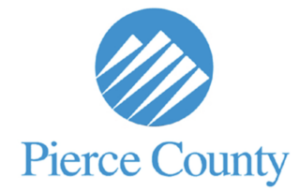 This Slaps!: The Pierce County, Washington elections office is contacting all voters ages 18 to 26 and asking them to update their signatures in an effort to head off challenges and make sure their votes are counted. In last year’s presidential election, 2,029 Pierce County ballots were flagged as “challenged” by election workers because the signature did not match the one on file. Voters aged 18 to 26 were disproportionately represented — 51% of the challenged ballots came from that age group. Voter registration in Washington happens automatically when people get their driver’s license, so for many voters, the signature they provided when they got their license at 16 is the one used for comparison when they vote. But by the time they turn 18, their signature often looks totally different, said Pierce County Auditor Linda Farmer. “Because kids these days don’t need to sign anything,” Farmer told Cascade PBS. Farmer said technology has in some ways made signatures “a little outdated,” and that elections officials throughout the country have been looking into alternative ways to verify people’s identities. “Logistically, we’re still figuring that out and going through a few pilots, so it’ll take a while for the industry to change,” Farmer said. “But for now, signatures are a tried and tested way to tell that it’s you.” The Auditor’s Office is planning to mail postcards to young voters later this month. They’re mailing two different versions — one in standard English, and another written in “Gen-Z slang,” Farmer said. “We’re running an experiment to see if people who get one postcard respond more at higher numbers than the other one,” Farmer said. One postcard starts with “Dear voter.” The Gen-Z one is addressed “Hey Bestie.” “Update your signature,” the standard version says. “You can even submit multiple versions to make sure your vote always counts!” “Fix it before it flops,” the Gen-Z version says. “Your signature isn’t ugly — it’s inconsistent. Fix it now and thank us later. It only takes like, 2 minutes.”
This Slaps!: The Pierce County, Washington elections office is contacting all voters ages 18 to 26 and asking them to update their signatures in an effort to head off challenges and make sure their votes are counted. In last year’s presidential election, 2,029 Pierce County ballots were flagged as “challenged” by election workers because the signature did not match the one on file. Voters aged 18 to 26 were disproportionately represented — 51% of the challenged ballots came from that age group. Voter registration in Washington happens automatically when people get their driver’s license, so for many voters, the signature they provided when they got their license at 16 is the one used for comparison when they vote. But by the time they turn 18, their signature often looks totally different, said Pierce County Auditor Linda Farmer. “Because kids these days don’t need to sign anything,” Farmer told Cascade PBS. Farmer said technology has in some ways made signatures “a little outdated,” and that elections officials throughout the country have been looking into alternative ways to verify people’s identities. “Logistically, we’re still figuring that out and going through a few pilots, so it’ll take a while for the industry to change,” Farmer said. “But for now, signatures are a tried and tested way to tell that it’s you.” The Auditor’s Office is planning to mail postcards to young voters later this month. They’re mailing two different versions — one in standard English, and another written in “Gen-Z slang,” Farmer said. “We’re running an experiment to see if people who get one postcard respond more at higher numbers than the other one,” Farmer said. One postcard starts with “Dear voter.” The Gen-Z one is addressed “Hey Bestie.” “Update your signature,” the standard version says. “You can even submit multiple versions to make sure your vote always counts!” “Fix it before it flops,” the Gen-Z version says. “Your signature isn’t ugly — it’s inconsistent. Fix it now and thank us later. It only takes like, 2 minutes.”
 Podcast News: In the latest episode of High Turnout Wide Margins, hosts Eric Fey and Brianna Lennon speak with Rachel Raper, the Director of Elections for Orange County, North Carolina. They spoke about the unique way the state tracks and traces back mail ballots to voters, and about how election administrators have overcome many of the challenges that have impacted North Carolina in the last few years. On this episode of the NPR Politics Podcast, White House correspondent Deepa Shivaram, voting correspondent Miles Parks, and power & influence reporter Jude Joffe-Block take a look at the Department of Homeland Security’s new searchable data system of citizenship records. For decades, voting officials have noted that there was no national citizenship list to compare their state lists to, so to verify citizenship for their voters, they either needed to ask people to provide a birth certificate or a passport — something that could disenfranchise millions — or use a complex patchwork of disparate data sources. Elections officials and privacy advocates are expressing concern. In the latest episode of The Voting Booth from the American Enterprise Institute, co-hosts John Fortier and Don Palmer are joined by Trey Hood, Professor of Political Science at the University of Georgia and Director of the University of Georgia’s SPIA Survey Research Center.
Podcast News: In the latest episode of High Turnout Wide Margins, hosts Eric Fey and Brianna Lennon speak with Rachel Raper, the Director of Elections for Orange County, North Carolina. They spoke about the unique way the state tracks and traces back mail ballots to voters, and about how election administrators have overcome many of the challenges that have impacted North Carolina in the last few years. On this episode of the NPR Politics Podcast, White House correspondent Deepa Shivaram, voting correspondent Miles Parks, and power & influence reporter Jude Joffe-Block take a look at the Department of Homeland Security’s new searchable data system of citizenship records. For decades, voting officials have noted that there was no national citizenship list to compare their state lists to, so to verify citizenship for their voters, they either needed to ask people to provide a birth certificate or a passport — something that could disenfranchise millions — or use a complex patchwork of disparate data sources. Elections officials and privacy advocates are expressing concern. In the latest episode of The Voting Booth from the American Enterprise Institute, co-hosts John Fortier and Don Palmer are joined by Trey Hood, Professor of Political Science at the University of Georgia and Director of the University of Georgia’s SPIA Survey Research Center.
 Sticker News: Congratulations to Madeline Strain, a recent graduate of Keshequa Central School for winning Livingston County, New York’s 2025 “I Voted” sticker contest. Strain’s winning sticker was a patriotic design that featured a bald eagle in front of the American flag, will be printed on stickers and distributed by the Board of Elections to thousands of voters during upcoming local elections. This marks the contest’s second year, which first started in 2024 as a way to promote and increase participation in local elections. The Board of Elections asked students from around Livingston County in grades 5-12 to submit their original artwork featuring the words “I voted” for the contest. “This contest has been a great way for us to engage with the younger community and promote interest in our democratic process,” said Elections Commissioner Gary Nageldinger. “We had some very impressive entries this year. I’d like to thank all the students who shared their designs and the hundreds of community members who voted in our contest. Keep an eye out for Madeline’s artwork next time you go the polls in Livingston County.” Board of Elections officials went through the many contest submissions and narrowed the entries down to their top five. Those finalists were then put to a public vote online. Madeline’s submission received an overwhelming 46.1% of the ballots cast, resulting in a clear favorite among voters.
Sticker News: Congratulations to Madeline Strain, a recent graduate of Keshequa Central School for winning Livingston County, New York’s 2025 “I Voted” sticker contest. Strain’s winning sticker was a patriotic design that featured a bald eagle in front of the American flag, will be printed on stickers and distributed by the Board of Elections to thousands of voters during upcoming local elections. This marks the contest’s second year, which first started in 2024 as a way to promote and increase participation in local elections. The Board of Elections asked students from around Livingston County in grades 5-12 to submit their original artwork featuring the words “I voted” for the contest. “This contest has been a great way for us to engage with the younger community and promote interest in our democratic process,” said Elections Commissioner Gary Nageldinger. “We had some very impressive entries this year. I’d like to thank all the students who shared their designs and the hundreds of community members who voted in our contest. Keep an eye out for Madeline’s artwork next time you go the polls in Livingston County.” Board of Elections officials went through the many contest submissions and narrowed the entries down to their top five. Those finalists were then put to a public vote online. Madeline’s submission received an overwhelming 46.1% of the ballots cast, resulting in a clear favorite among voters.
Personnel News: Wendy Underhill has retired from the National Conference of State Legislatures. Jefferson County, Missouri Clerk Jeannie Goff has announced she will not seek reelection in 2026. Brent Turner has been hired as the assistant registrar of voters in Shasta County. Charles Gibson is no longer the Jefferson County, Tennessee elections administrator. Montgomery attorney Caroleene Dobson (R) who ran for Congress last year, announced that she will run for Alabama secretary of state in 2026. Shuwaski Young has announced his candidacy for Mississippi secretary of state. Nancy Blackmer is stepping down as the Orange, Massachusetts town clerk. Rep. Ken Rahjes, R-Agra, officially filed as a Republican candidate for Kansas secretary of state. Gail Lee has been appointed to the DeKalb County, Georgia board of elections. Bailey Kelley is the new Iowa director of elections. Republican state Rep. Tim Fleming is planning to run for Georgia secretary of state. Beth McEwen has retired as the Juneau, Alaska clerk. Jonesborough Mayor Chuck Vest will resign as mayor and take the reins of the Washington County, Tennessee election administrator. Electionline Founder and Director Emeritus Doug Chapin has announced his candidacy for U.S. Congress. Congratulations to Marilyn Jacobcik, president of the Lorain County, Ohio Board of Elections for being named one of two winners of the Pat Wolfe Election Official of the Year award for 2024. And congratulations to Wayne County for being named the Ohio board of elections of the year for 2024.
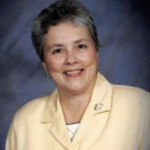 In Memoriam: Longtime member of the Belmont County, Ohio Board of Elections and public servant Frankie Lee Carnes died this past week at the age of 82 following a short illness. Carnes served as the first female director of the Belmont County Board of Elections, taking over the position in 1975. According to The Intelligencer, Carnes always expressed an affinity for the older punch card system of voting, but grew to embrace the newer voting technologies. In 1995, she became the first chairwoman of the board, succeeding her husband, former Ohio Sen. James Carnes, R-St. Clairsville. “When you hear the Carnes name in our community, you immediately think of Jim and Frankie Carnes,” said Belmont County Commissioner Vince Gianangeli. “She served the community for over 50 years on the board of elections. She always ran the office by the book, and was well respected. “Her expertise will be hard to replace. We pray for her family during this difficult time.” Belmont County Commissioner Jerry Echemann added he also appreciated Carnes’ service to the county and the board of elections. “Certainly, down through the years, we’ve been really proud of the work in general from our board of elections,” he said. “We’ve had very little problems at all during the elections. Everything is always run efficiently and fairly — and of course she would have been a very big part of that.”
In Memoriam: Longtime member of the Belmont County, Ohio Board of Elections and public servant Frankie Lee Carnes died this past week at the age of 82 following a short illness. Carnes served as the first female director of the Belmont County Board of Elections, taking over the position in 1975. According to The Intelligencer, Carnes always expressed an affinity for the older punch card system of voting, but grew to embrace the newer voting technologies. In 1995, she became the first chairwoman of the board, succeeding her husband, former Ohio Sen. James Carnes, R-St. Clairsville. “When you hear the Carnes name in our community, you immediately think of Jim and Frankie Carnes,” said Belmont County Commissioner Vince Gianangeli. “She served the community for over 50 years on the board of elections. She always ran the office by the book, and was well respected. “Her expertise will be hard to replace. We pray for her family during this difficult time.” Belmont County Commissioner Jerry Echemann added he also appreciated Carnes’ service to the county and the board of elections. “Certainly, down through the years, we’ve been really proud of the work in general from our board of elections,” he said. “We’ve had very little problems at all during the elections. Everything is always run efficiently and fairly — and of course she would have been a very big part of that.”
New Research & Resources
 Translation Services: U.S. Digital Response (USDR) is seeking election offices to collaborate on expanding our proven human-centered translation approach. Building on our success in developing an AI translation assistant for unemployment insurance, we’ll develop AI-powered tools to help election officials better serve both Limited English Proficiency (LEP) communities and English speakers, with an initial focus on plain language revisions and Spanish language translations. Visit https://usdr.link/elections/gala-cfp to learn more.
Translation Services: U.S. Digital Response (USDR) is seeking election offices to collaborate on expanding our proven human-centered translation approach. Building on our success in developing an AI translation assistant for unemployment insurance, we’ll develop AI-powered tools to help election officials better serve both Limited English Proficiency (LEP) communities and English speakers, with an initial focus on plain language revisions and Spanish language translations. Visit https://usdr.link/elections/gala-cfp to learn more.
 Ranked Choice Voting: A new exit poll from SurveyUSA finds that New York City voters say ranked choice voting is simple, like it, and understand it. New York City used RCV for the third time in its June primaries. Key findings of the poll include:
Ranked Choice Voting: A new exit poll from SurveyUSA finds that New York City voters say ranked choice voting is simple, like it, and understand it. New York City used RCV for the third time in its June primaries. Key findings of the poll include:
- 96% of New York City voters say their ballot was simple to complete, including at least 94% of each racial group surveyed.
- 76% say they want to keep or expand RCV, with 42% wanting to expand it to general elections and 34% wanting to keep it for primaries. Only 17% say RCV should not be used for municipal elections.
- 81% say they understand RCV extremely or very well, with another 16% saying they understand it somewhat well and only 3% saying they do not understand it well.
- 82% say they ranked two or more candidates for mayor, with 45% reporting that they ranked five.
- Among voters who ranked 2 or more candidates, 58% say “ranking allowed me to vote for candidates who aligned with my values.” Among voters who ranked only one, 87% say “that was the only candidate I liked.”
 Youth and Democracy: Young people’s lack of trust in institutions is one of the major challenges to maintaining or strengthening their connection to democracy. It can also be an opportunity: as threats to democratic institutions and values build in the U.S. and around the world, it is vital to outline strategies that can reignite young people’s connections to institutions and understanding of their civic power ahead of the 2026 elections and beyond. CIRCLE’s new data on youth trust in institutions paints a complicated picture of youth distrust, how it relates to civic action, and what we can learn from it to inform future efforts. CIRCLE’s recent report, How Does Gen Z Really Feel About Democracy?, published in partnership with the nonpartisan nonprofit Protect Democracy, highlighted the precarious relationship between trust in institutions and young people’s civic development. One major finding: the most civically engaged young people, who we say show a Hostile Dissatisfaction toward democracy, tend to be less trusting of institutions. This aligns with past CIRCLE research, that highlights a connection between young people who are paying attention to and engaging with institutions and a certain degree of cynicism and disillusionment. Research also found that only 16% of 18- to 29-year-olds believe democracy is working well for young people.
Youth and Democracy: Young people’s lack of trust in institutions is one of the major challenges to maintaining or strengthening their connection to democracy. It can also be an opportunity: as threats to democratic institutions and values build in the U.S. and around the world, it is vital to outline strategies that can reignite young people’s connections to institutions and understanding of their civic power ahead of the 2026 elections and beyond. CIRCLE’s new data on youth trust in institutions paints a complicated picture of youth distrust, how it relates to civic action, and what we can learn from it to inform future efforts. CIRCLE’s recent report, How Does Gen Z Really Feel About Democracy?, published in partnership with the nonpartisan nonprofit Protect Democracy, highlighted the precarious relationship between trust in institutions and young people’s civic development. One major finding: the most civically engaged young people, who we say show a Hostile Dissatisfaction toward democracy, tend to be less trusting of institutions. This aligns with past CIRCLE research, that highlights a connection between young people who are paying attention to and engaging with institutions and a certain degree of cynicism and disillusionment. Research also found that only 16% of 18- to 29-year-olds believe democracy is working well for young people.
Ballot Measures, Legislation & Rulemaking
 Federal Legislation: U.S. Virgin Islands Delegate Stacey Plaskett and Republican colleague, James Moylan of Guam, introduced a bipartisan bill July 3 to create a congressional task force that will study voting rights and develop a report on representation for U.S. territories. The proposed 15-member task force would be appointed by leadership from both chambers of Congress. It would hold hearings, work with territorial governments, and deliver a report within a year detailing the barriers residents face in gaining full and equal representation. The bill builds on provisions from the “For the People Act” introduced in previous congressional sessions by House democrats in 116th and 117th Congresses. More than 3.5 million U.S. citizens living in the territories cannot vote for president and lack full voting representation in Congress. Plaskett announced the legislation on July 3, highlighting the territory’s long history of fighting for equal rights. “Today, on Emancipation Day in the U.S. Virgin Islands, we take a critical step toward addressing one of the most glaring inequities in our democracy,” Plaskett said. “The timing of this announcement honors the historic significance of July 3, 1848, when enslaved people in the Danish West Indies—now the U.S. Virgin Islands — gained their freedom, marking a pivotal moment in the fight for equal rights and representation.” Moylan said the lack of voting rights is especially troubling given the number of residents from the territories who serve in the military.
Federal Legislation: U.S. Virgin Islands Delegate Stacey Plaskett and Republican colleague, James Moylan of Guam, introduced a bipartisan bill July 3 to create a congressional task force that will study voting rights and develop a report on representation for U.S. territories. The proposed 15-member task force would be appointed by leadership from both chambers of Congress. It would hold hearings, work with territorial governments, and deliver a report within a year detailing the barriers residents face in gaining full and equal representation. The bill builds on provisions from the “For the People Act” introduced in previous congressional sessions by House democrats in 116th and 117th Congresses. More than 3.5 million U.S. citizens living in the territories cannot vote for president and lack full voting representation in Congress. Plaskett announced the legislation on July 3, highlighting the territory’s long history of fighting for equal rights. “Today, on Emancipation Day in the U.S. Virgin Islands, we take a critical step toward addressing one of the most glaring inequities in our democracy,” Plaskett said. “The timing of this announcement honors the historic significance of July 3, 1848, when enslaved people in the Danish West Indies—now the U.S. Virgin Islands — gained their freedom, marking a pivotal moment in the fight for equal rights and representation.” Moylan said the lack of voting rights is especially troubling given the number of residents from the territories who serve in the military.
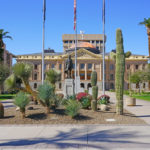 Arizona: Gov. Katie Hobbs (D) vetoed legislation designed to help Arizona expedite results. The governor said she could not accept a provision she said could penalize some voters who wait until the last minute to cast their ballots. Her rejection of SB 1001 was in the last batch of bills sent to her before the Legislature adjourned for the year on June 27. SB1001 still would have allowed ballot drop-offs — but with the option of on-site verification. That would mean getting photo identification from those dropping off their ballots after Friday night, a move that would eliminate the need for the kind of signature verification of “late-early ballots” that otherwise could not start until days after Election Day. The legislation still would allow people to simply drop a ballot and leave. And those ballots still would be counted. But there was a price of sorts to be paid for forcing that after-election signature verification: That voter would be removed from the “active early voting list,” meaning they would not automatically get another ballot by mail ahead of the next election. Hobbs pronounced that a non-starter. She said there are voters who depend on family members or caregivers to drop off their early ballots, meaning they could not appear in person to have their identification checked. And that, said the governor, presents them with the choice of either losing the option to complete their ballots on Election Day — an option that exists for everyone else — or being removed from that active early voter list. “I’m certain that we all agree that every eligible vote should count, and no American should be deprived of this right,” Hobbs wrote.
Arizona: Gov. Katie Hobbs (D) vetoed legislation designed to help Arizona expedite results. The governor said she could not accept a provision she said could penalize some voters who wait until the last minute to cast their ballots. Her rejection of SB 1001 was in the last batch of bills sent to her before the Legislature adjourned for the year on June 27. SB1001 still would have allowed ballot drop-offs — but with the option of on-site verification. That would mean getting photo identification from those dropping off their ballots after Friday night, a move that would eliminate the need for the kind of signature verification of “late-early ballots” that otherwise could not start until days after Election Day. The legislation still would allow people to simply drop a ballot and leave. And those ballots still would be counted. But there was a price of sorts to be paid for forcing that after-election signature verification: That voter would be removed from the “active early voting list,” meaning they would not automatically get another ballot by mail ahead of the next election. Hobbs pronounced that a non-starter. She said there are voters who depend on family members or caregivers to drop off their early ballots, meaning they could not appear in person to have their identification checked. And that, said the governor, presents them with the choice of either losing the option to complete their ballots on Election Day — an option that exists for everyone else — or being removed from that active early voter list. “I’m certain that we all agree that every eligible vote should count, and no American should be deprived of this right,” Hobbs wrote.
 Florida: Gov. Ron DeSantis (R) has signed Senate Bill 892 into law, officially codifying the Florida State University College of Law’s Election Law Center. The center was created during the 2023 legislative session through a $1 million appropriation.The FSU Election Law Center provides objective, evidence-based analysis of constitutional, statutory and regulatory issues in election law, working closely with election administrators, legislators and policymakers to improve election procedures and promote public confidence in the electoral system. The center also creates unique learning opportunities for FSU College of Law students, develops comprehensive election law resources and hosts conferences and training sessions.
Florida: Gov. Ron DeSantis (R) has signed Senate Bill 892 into law, officially codifying the Florida State University College of Law’s Election Law Center. The center was created during the 2023 legislative session through a $1 million appropriation.The FSU Election Law Center provides objective, evidence-based analysis of constitutional, statutory and regulatory issues in election law, working closely with election administrators, legislators and policymakers to improve election procedures and promote public confidence in the electoral system. The center also creates unique learning opportunities for FSU College of Law students, develops comprehensive election law resources and hosts conferences and training sessions.
 Guam: In line with a March executive order by President Donald Trump “to preserve and protect the integrity of American elections,” Sen. Telo Taitague held a public hearing on her Bill 154-38 that would require “documentary proof of United States citizenship to align Guam voter registration practices with federal election integrity standards.” “At the heart of this bill is a simple principle: voting in U.S. elections is a right reserved for U.S. citizens. While Guam law currently requires voter applications to declare their citizenship under penalty of perjury, it does not require actual proof of that citizenship,” Taitague said. Taitague chairs the Committee on Economic Investment, Military Buildup, Regional Relations, Regulatory Affairs, Technology, Justice, Elections and Retirement. Guam Election Commission Executive Director Maria Pangelinan testified that the GEC supports reinstating documentation requirements. “Historically, Guam law required documentary proof of citizenship. This was later removed in 2015 to streamline registration, allowing applicants to self-declare under penalty of perjury,” Pangelinan said. “Effectively, Bill 154-38 provides a structured approach to, one, ensure that voter eligibility is clearly established. Two, provide a uniform, fair, and enforceable standard for all registrants. And three, reflect best practices for election security and legal compliance,” she added Bill 154 would require voter applicants to submit documentary proof of U.S. citizenship, such as a U.S. passport, Certificate of U.S. Citizenship, or Certificate of Naturalization, along with a valid government-issued photo identification, Taitague said.
Guam: In line with a March executive order by President Donald Trump “to preserve and protect the integrity of American elections,” Sen. Telo Taitague held a public hearing on her Bill 154-38 that would require “documentary proof of United States citizenship to align Guam voter registration practices with federal election integrity standards.” “At the heart of this bill is a simple principle: voting in U.S. elections is a right reserved for U.S. citizens. While Guam law currently requires voter applications to declare their citizenship under penalty of perjury, it does not require actual proof of that citizenship,” Taitague said. Taitague chairs the Committee on Economic Investment, Military Buildup, Regional Relations, Regulatory Affairs, Technology, Justice, Elections and Retirement. Guam Election Commission Executive Director Maria Pangelinan testified that the GEC supports reinstating documentation requirements. “Historically, Guam law required documentary proof of citizenship. This was later removed in 2015 to streamline registration, allowing applicants to self-declare under penalty of perjury,” Pangelinan said. “Effectively, Bill 154-38 provides a structured approach to, one, ensure that voter eligibility is clearly established. Two, provide a uniform, fair, and enforceable standard for all registrants. And three, reflect best practices for election security and legal compliance,” she added Bill 154 would require voter applicants to submit documentary proof of U.S. citizenship, such as a U.S. passport, Certificate of U.S. Citizenship, or Certificate of Naturalization, along with a valid government-issued photo identification, Taitague said.
 Michigan: Clerks from across the state spoke up before the House Election Integrity Committee, offering their support for a piece of legislation aimed at preserving their say in pre-election testing of voting machines. Committee Chair Rachelle Smit (R-Martin), a former clerk, told her colleagues that for years, local clerks have successfully conducted logic and accuracy testing of their machines by working with vendors of their choosing. However, Smit raised concerns that a recent contract acquired by the Michigan Secretary of State could require clerks to use only their contracted vendor to generate test decks. “This represents a fundamental shift from our local control to state mandated centralization, a shift that raises concerns about the integrity, transparency and fiscal responsibility. The bill before us today provides very clear, common sense protections that preserve local autonomy while ensuring proper standards. Specifically it protects local choice,” Smit said. Smit’s House Bill 4602 states that the Secretary of State cannot bar or restrict local clerks from using any lawful source for creating testing materials. “Our local clerks are directly accountable to their communities. This legislation ensures that they retain the tools and autonomy necessary to fulfill that responsibility. When problems arise, clerks need direct control over the processes and relationships with their vendors,” Smit said, later emphasizing that local jurisdictions operate under tight budgets.
Michigan: Clerks from across the state spoke up before the House Election Integrity Committee, offering their support for a piece of legislation aimed at preserving their say in pre-election testing of voting machines. Committee Chair Rachelle Smit (R-Martin), a former clerk, told her colleagues that for years, local clerks have successfully conducted logic and accuracy testing of their machines by working with vendors of their choosing. However, Smit raised concerns that a recent contract acquired by the Michigan Secretary of State could require clerks to use only their contracted vendor to generate test decks. “This represents a fundamental shift from our local control to state mandated centralization, a shift that raises concerns about the integrity, transparency and fiscal responsibility. The bill before us today provides very clear, common sense protections that preserve local autonomy while ensuring proper standards. Specifically it protects local choice,” Smit said. Smit’s House Bill 4602 states that the Secretary of State cannot bar or restrict local clerks from using any lawful source for creating testing materials. “Our local clerks are directly accountable to their communities. This legislation ensures that they retain the tools and autonomy necessary to fulfill that responsibility. When problems arise, clerks need direct control over the processes and relationships with their vendors,” Smit said, later emphasizing that local jurisdictions operate under tight budgets.
House Republicans introduced a bill to ban ranked-choice voting in Michigan. The bill would ban any ranked choice elections at state, city or township levels.
 New Jersey: The Senate State Government, Wagering, Tourism & Historic Preservation Committee has advanced legislation sponsored by Sen. Andrew Zwicker (D-Middlesex/Mercer/Somerset/Hunterdon), which would amend the law concerning post-election audits. Under the bill, S-3853, these changes would include permitting post-election audits to be conducted by independent third-party electronic machines that are not in any way associated with the official ballot tabulation system for the election, in addition to a hand-to-eye count. Under current law, post-election audits are conducted exclusively through hand-to-eye counts of voter-verifiable paper records. The bill would also eliminate certain requirements for audit procedures designed, adopted, and implemented by the audit team to ensure a certain percentage of statistical power that a 100 percent manual recount of the voter-verifiable paper records would not alter the electoral outcome reported by the audit. Instead, post-election audit procedures will be published before elections and subject to public comment.
New Jersey: The Senate State Government, Wagering, Tourism & Historic Preservation Committee has advanced legislation sponsored by Sen. Andrew Zwicker (D-Middlesex/Mercer/Somerset/Hunterdon), which would amend the law concerning post-election audits. Under the bill, S-3853, these changes would include permitting post-election audits to be conducted by independent third-party electronic machines that are not in any way associated with the official ballot tabulation system for the election, in addition to a hand-to-eye count. Under current law, post-election audits are conducted exclusively through hand-to-eye counts of voter-verifiable paper records. The bill would also eliminate certain requirements for audit procedures designed, adopted, and implemented by the audit team to ensure a certain percentage of statistical power that a 100 percent manual recount of the voter-verifiable paper records would not alter the electoral outcome reported by the audit. Instead, post-election audit procedures will be published before elections and subject to public comment.
 North Carolina: House Republicans want more than a third of existing staff positions at the state elections office to be converted to jobs for political appointees, eliciting criticism about the politicization of voting administration. The proposed changes were unveiled in a bill approved by the House Elections Law Committee June 26. Changes the bill proposes would prohibit state and local election board members from encouraging voting and open a way for foreign nationals to contribute to referendum campaigns. Another provision would require members of the military and citizens voting from other countries to provide photo ID or sign a document saying why they couldn’t send one. State Elections Director Sam Hayes told the House Elections Committee that House Bill 958 would allow him to reorganize the office the way he wants. “These positions would just allow me the flexibility that I need to conduct that reorganization and make sure that folks that are surrounding me, certainly my direct reports and I, are aligned on the vision for the agency as I set forward,” he said. “But I want to assure everybody today that we are going to do this in a nonpartisan fashion.” Democrats on the committee objected to having the main office overseeing elections convert 25 jobs to those where employees are hired and fired based on their politics. The bill would also authorize a new signature verification pilot program for citizens voting by mail. The legislature mandated the first one in 2023. The bill also includes provisions that would prevent state and local election board members from making public statements promoting voter turnout.
North Carolina: House Republicans want more than a third of existing staff positions at the state elections office to be converted to jobs for political appointees, eliciting criticism about the politicization of voting administration. The proposed changes were unveiled in a bill approved by the House Elections Law Committee June 26. Changes the bill proposes would prohibit state and local election board members from encouraging voting and open a way for foreign nationals to contribute to referendum campaigns. Another provision would require members of the military and citizens voting from other countries to provide photo ID or sign a document saying why they couldn’t send one. State Elections Director Sam Hayes told the House Elections Committee that House Bill 958 would allow him to reorganize the office the way he wants. “These positions would just allow me the flexibility that I need to conduct that reorganization and make sure that folks that are surrounding me, certainly my direct reports and I, are aligned on the vision for the agency as I set forward,” he said. “But I want to assure everybody today that we are going to do this in a nonpartisan fashion.” Democrats on the committee objected to having the main office overseeing elections convert 25 jobs to those where employees are hired and fired based on their politics. The bill would also authorize a new signature verification pilot program for citizens voting by mail. The legislature mandated the first one in 2023. The bill also includes provisions that would prevent state and local election board members from making public statements promoting voter turnout.
 Ohio: Two Republican Ohio lawmakers want to revise the state’s election laws to require proof of citizenship during or after voter registration, among other amendments. State Sen. Theresa Gavarone of Bowling Green and State Sen. Andrew Brenner of Delaware said the creation of Senate Bill 153 is to protect the integrity of Ohio’s elections. If it passes, it will require Ohioans registering to vote or updating their registration to also provide proof of citizenship. The bill states current or expired driver’s license, passports, birth certificates or naturalization forms would all be accepted. If the person has had a name change, they would have to show proof of that change. The bill would also change zoning laws for county elections and ban drop boxes. SB153 remains in Senate committee for discussion and approval. It must pass the state Senate and House before moving to Gov. Mike DeWine’s desk for consideration.
Ohio: Two Republican Ohio lawmakers want to revise the state’s election laws to require proof of citizenship during or after voter registration, among other amendments. State Sen. Theresa Gavarone of Bowling Green and State Sen. Andrew Brenner of Delaware said the creation of Senate Bill 153 is to protect the integrity of Ohio’s elections. If it passes, it will require Ohioans registering to vote or updating their registration to also provide proof of citizenship. The bill states current or expired driver’s license, passports, birth certificates or naturalization forms would all be accepted. If the person has had a name change, they would have to show proof of that change. The bill would also change zoning laws for county elections and ban drop boxes. SB153 remains in Senate committee for discussion and approval. It must pass the state Senate and House before moving to Gov. Mike DeWine’s desk for consideration.
Legal Updates
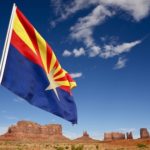 Arizona: According to Votebeat, Arizona election officials would be instructed to provide more notice to voters who are at risk of being removed from the state’s early-voting list, under a conditional legal settlement with voting rights groups. The settlement, which was filed in court June 23 and still subject to final approval, would resolve a longstanding challenge to a 2021 law that eliminated the state’s Permanent Early Voting List. The agreement says voters who face removal should be notified two additional times before they are taken off the list, and once afterward. The agreement does not appear to impose any new notification requirements on county recorders, who manage county voter rolls. What it would do is provide suggested best practices for how the recorders should implement the law, including the schedule of notices. Because the additional notices wouldn’t be required, voters across the state could face unequal treatment as recorders begin implementing the law for the first time in 2027.
Arizona: According to Votebeat, Arizona election officials would be instructed to provide more notice to voters who are at risk of being removed from the state’s early-voting list, under a conditional legal settlement with voting rights groups. The settlement, which was filed in court June 23 and still subject to final approval, would resolve a longstanding challenge to a 2021 law that eliminated the state’s Permanent Early Voting List. The agreement says voters who face removal should be notified two additional times before they are taken off the list, and once afterward. The agreement does not appear to impose any new notification requirements on county recorders, who manage county voter rolls. What it would do is provide suggested best practices for how the recorders should implement the law, including the schedule of notices. Because the additional notices wouldn’t be required, voters across the state could face unequal treatment as recorders begin implementing the law for the first time in 2027.
The Republican National Committee (RNC) and Arizona GOP have filed a lawsuit seeking to block an Arizona law that allows military and other temporarily absent overseas voters to cast ballots without providing proof of citizenship directly to the state. The Arizona law, adopted in 2023, allows some overseas U.S. citizens who have not lived in the Grand Canyon State but have a parent who is a registered Arizona voter to cast ballots through a federal write-in system created under the Uniformed and Overseas Citizens Absentee Voting Act (UOCAVA) of 1986. The Arizona election law was reviewed by the Supreme Court last August, when justices sided with the RNC and Arizona GOP leaders’ argument that proof of citizenship should be required for state voter registration forms. But the high court also upheld the portion of the law that allows overseas voters to cast ballots by mail without confirming citizenship to the state if they meet other federal registration requirements.
 Arkansas: Thomas Wesson, 59 of Ouachita County is facing felony charges of lying about a felony conviction to cast a ballot in the 2024 general election, a news release from Arkansas Attorney General Tim Griffin states. Agents working for the attorney general’s office and Ouachita County sheriff’s deputies arrested Wesson after an investigation by the office’s Election Integrity Unit determined that Wesson cast a provisional ballot in November after stating he isn’t a felon on his voter registration application, the release states. Wesson, who was convicted of felony possession of narcotics in 2000, did not follow proper procedure and illegally inserted his ballot into a tabulator, the release states. In Arkansas, felons are ineligible to vote unless they have completed their sentences and restored their voting rights.
Arkansas: Thomas Wesson, 59 of Ouachita County is facing felony charges of lying about a felony conviction to cast a ballot in the 2024 general election, a news release from Arkansas Attorney General Tim Griffin states. Agents working for the attorney general’s office and Ouachita County sheriff’s deputies arrested Wesson after an investigation by the office’s Election Integrity Unit determined that Wesson cast a provisional ballot in November after stating he isn’t a felon on his voter registration application, the release states. Wesson, who was convicted of felony possession of narcotics in 2000, did not follow proper procedure and illegally inserted his ballot into a tabulator, the release states. In Arkansas, felons are ineligible to vote unless they have completed their sentences and restored their voting rights.
 California: The San Luis Obispo County District Attorney’s Office filed election fraud charges against Gaea Powell, who ran for Arroyo Grande mayor in the 2022 and 2024 elections. Powell is charged with voter registration fraud, filing a false declaration of candidacy, fraudulent voting, failure to file campaign finance reports, and perjury by declaration. The DA’s Office alleges that in July 2022, Powell registered to vote at an address in the City of Arroyo Grande where she did not live, thereby committing voter registration fraud. Instead, prosecutors say she lived in a rural part of the county outside of the city limits. Also during the 2022 election cycle, she’s accused of falsely declaring under penalty of perjury the location of her residence, submitting false nomination papers, failing to file campaign finance reports as required by law, and voting on November 8, 2022, where she was not legally entitled to vote. It’s also alleged that Powell voted in the March 5 and November 5 elections in 2024, where she was not legally entitled to vote, falsely declared under penalty of perjury the location of her residence, and submitted false nomination papers.
California: The San Luis Obispo County District Attorney’s Office filed election fraud charges against Gaea Powell, who ran for Arroyo Grande mayor in the 2022 and 2024 elections. Powell is charged with voter registration fraud, filing a false declaration of candidacy, fraudulent voting, failure to file campaign finance reports, and perjury by declaration. The DA’s Office alleges that in July 2022, Powell registered to vote at an address in the City of Arroyo Grande where she did not live, thereby committing voter registration fraud. Instead, prosecutors say she lived in a rural part of the county outside of the city limits. Also during the 2022 election cycle, she’s accused of falsely declaring under penalty of perjury the location of her residence, submitting false nomination papers, failing to file campaign finance reports as required by law, and voting on November 8, 2022, where she was not legally entitled to vote. It’s also alleged that Powell voted in the March 5 and November 5 elections in 2024, where she was not legally entitled to vote, falsely declared under penalty of perjury the location of her residence, and submitted false nomination papers.
Cruz Mora, 26 of Live Oak has been arrested for illegal electioneering related to an incident that took place during the November 2024 election. According to the Sutter County Sheriff’s Mora was reported to their office by the Sutter County Precinct Inspector in November of 2024 for interfering with the election. According to the inspector, Mora was wearing a campaign shirt and recording inside a polling place with his cellphone. Authorities say that election observers are prohibited from displaying election materials or recording voters at polling sites. This is to prevent the intimidation of voters while they are at a polling place. A warrant was issued for Mora by authorities for illegal electioneering. On July 4, Mora was found riding his bike in Live Oak and was taken into custody by the Sutter County Sheriff’s Office without incident.
 Colorado: Federal Magistrate Judge Scott T. Varholak denied a motion from former Mesa County Clerk Tina Peters, who asked to appear at an upcoming court hearing remotely from prison in Pueblo. Peters is serving a nine-year prison sentence for her role in a 2021 security breach in the elections office she oversaw. Peters has appealed the conviction. While the Colorado Court of Appeals reviews her appeal, Peters has filed a federal habeas corpus petition in U.S. District Court of Colorado, arguing that she should be released on bond pending the appeal decision. The hearing, scheduled for July 22, is set to focus on the habeas corpus petition, in which Peters’ attorneys say that “since she has been incarcerated, her health has deteriorated.” Peters’ attorneys said in the motion that she wanted to attend the July 22 hearing because the issues being discussed “affect her liberty interests.” Varholak’s decision precludes her from doing so.
Colorado: Federal Magistrate Judge Scott T. Varholak denied a motion from former Mesa County Clerk Tina Peters, who asked to appear at an upcoming court hearing remotely from prison in Pueblo. Peters is serving a nine-year prison sentence for her role in a 2021 security breach in the elections office she oversaw. Peters has appealed the conviction. While the Colorado Court of Appeals reviews her appeal, Peters has filed a federal habeas corpus petition in U.S. District Court of Colorado, arguing that she should be released on bond pending the appeal decision. The hearing, scheduled for July 22, is set to focus on the habeas corpus petition, in which Peters’ attorneys say that “since she has been incarcerated, her health has deteriorated.” Peters’ attorneys said in the motion that she wanted to attend the July 22 hearing because the issues being discussed “affect her liberty interests.” Varholak’s decision precludes her from doing so.
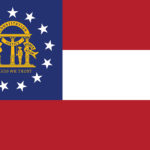 Georgia: Georgia’s state Court of Appeals has upheld a lower court’s ruling in a 2024 election case, affirming that local election board members must certify election results by the deadline outlined in state law. Last fall, Fulton County election board member Julie Adams, a Republican who refused to certify the results in her county’s presidential preference primary, filed a lawsuit against Fulton County, arguing that board members have the option to refuse to certify election results if they have reason to believe they are inaccurate. A spate of last-minute rule changes issued by the State Election Board would also have granted county boards greater leeway to delay certifying election results, but were later struck down by a Superior Court judge. In October, Fulton County Superior Court Judge Robert McBurney rejected her claim, issuing a ruling that stated “election superintendents in Georgia have a mandatory fixed obligation to certify election results.” In a decision issued July 2, a three-judge panel agreed. “Adams’ contention that the trial court erred by declaring she had a mandatory duty to certify election results is without merit,” the judges wrote in their decision. They also concluded that while election officials have certain forms of recourse if they believe there are errors in the election counts, “these concerns are not a basis for a superintendent to partially or entirely refuse to certify election results by the deadline.”
Georgia: Georgia’s state Court of Appeals has upheld a lower court’s ruling in a 2024 election case, affirming that local election board members must certify election results by the deadline outlined in state law. Last fall, Fulton County election board member Julie Adams, a Republican who refused to certify the results in her county’s presidential preference primary, filed a lawsuit against Fulton County, arguing that board members have the option to refuse to certify election results if they have reason to believe they are inaccurate. A spate of last-minute rule changes issued by the State Election Board would also have granted county boards greater leeway to delay certifying election results, but were later struck down by a Superior Court judge. In October, Fulton County Superior Court Judge Robert McBurney rejected her claim, issuing a ruling that stated “election superintendents in Georgia have a mandatory fixed obligation to certify election results.” In a decision issued July 2, a three-judge panel agreed. “Adams’ contention that the trial court erred by declaring she had a mandatory duty to certify election results is without merit,” the judges wrote in their decision. They also concluded that while election officials have certain forms of recourse if they believe there are errors in the election counts, “these concerns are not a basis for a superintendent to partially or entirely refuse to certify election results by the deadline.”
 Kentucky: Kentucky Attorney General Russell Coleman announced July 1 there were no credible election law violations from 12 counties after inquiries were opened following the 2024 general election. The inquiries, conducted by detectives from the Attorney General’s Department of Criminal Investigations, were presented to grand juries by the Special Prosecutions Unit, officials from Coleman’s office said in a statement. “Kentuckians can have confidence our Commonwealth’s elections are free, fair and secure,” Coleman said, adding he was appreciative of county clerks, poll workers and volunteers “who made it possible for Kentuckians to exercise one of our most fundamental rights.” After the 2024 general election, Coleman randomly picked 12 counties to undergo the inquiries. In addition to Jefferson County, Barren, Boyle, Calloway, Campbell, Daviess, Edmonson, Jessamine, Lincoln, Metcalf, Trigg and Warren counties were also selected.
Kentucky: Kentucky Attorney General Russell Coleman announced July 1 there were no credible election law violations from 12 counties after inquiries were opened following the 2024 general election. The inquiries, conducted by detectives from the Attorney General’s Department of Criminal Investigations, were presented to grand juries by the Special Prosecutions Unit, officials from Coleman’s office said in a statement. “Kentuckians can have confidence our Commonwealth’s elections are free, fair and secure,” Coleman said, adding he was appreciative of county clerks, poll workers and volunteers “who made it possible for Kentuckians to exercise one of our most fundamental rights.” After the 2024 general election, Coleman randomly picked 12 counties to undergo the inquiries. In addition to Jefferson County, Barren, Boyle, Calloway, Campbell, Daviess, Edmonson, Jessamine, Lincoln, Metcalf, Trigg and Warren counties were also selected.
Thomas Dennis III, 51 of Covington was indicted June 26 on charges that he committed voter fraud over a 20-year period, according to Kentucky Attorney Russell Coleman. Dennis was indicted on three counts of wrongful registration, a felony, and three counts of perjury, a misdemeanor. Dennis, who was found guilty of sexual misconduct in 1993, according to court records, was a felon who attempted to register to vote three times in 2006, 2018 and 2020, respectively, according to the court’s indictment. Those attempts also landed him the perjury charges for attempting to mislead county officials by falsifying his voting record.
 Louisiana: The Supreme Court ordered further arguments over Louisiana’s congressional map that was approved by the state’s GOP-led legislature and created a second majority-Black district. An order from the court issued on the last day of its term restored the case to its calendar for reargument, with an additional scheduling order to come. Justice Clarence Thomas dissented from the move to order more arguments and said the court should have decided the case. The move means the state’s map with two majority-Black districts remains intact for now. The district lines at the center of the dispute were invalidated in 2022 by a three-judge lower court panel, which sided with a group of self-described “non-African-American voters” who had challenged the House map as an unconstitutional racial gerrymander. The map wasn’t the first crafted by the state’s Republican-led legislature in the wake of the 2020 Census. Instead, Louisiana’s efforts to redraw district lines, as all states do after the census, have resulted in a yearslong legal battle that has been before the Supreme Court twice before.
Louisiana: The Supreme Court ordered further arguments over Louisiana’s congressional map that was approved by the state’s GOP-led legislature and created a second majority-Black district. An order from the court issued on the last day of its term restored the case to its calendar for reargument, with an additional scheduling order to come. Justice Clarence Thomas dissented from the move to order more arguments and said the court should have decided the case. The move means the state’s map with two majority-Black districts remains intact for now. The district lines at the center of the dispute were invalidated in 2022 by a three-judge lower court panel, which sided with a group of self-described “non-African-American voters” who had challenged the House map as an unconstitutional racial gerrymander. The map wasn’t the first crafted by the state’s Republican-led legislature in the wake of the 2020 Census. Instead, Louisiana’s efforts to redraw district lines, as all states do after the census, have resulted in a yearslong legal battle that has been before the Supreme Court twice before.
 Minnesota: Ronnie Williams, 58, of Nevada pleaded guilty this week to conspiracy to commit voter registration fraud. Williams entered his plea before U.S. District Judge Laura Provinzino in St. Paul. Court records don’t say whether there was a formal plea agreement. Williams’ co-defendant, Lorraine Lee Combs, 57, pleaded guilty June 24. Under her plea agreement, the prosecution and defense agreed that the nonbinding federal sentencing guidelines recommend a sentence of zero to six months in prison, with one to three years of supervised release and a fine of up to $20,000. The actual sentences will be determined by the judge. The charges carry statutory maximums of five years in prison. Sentencing dates have not been set. Both defendants will remain free in the meantime. Williams and Combs allegedly generated fictitious names and other data they used to fill out Minnesota voter registration forms in 2021 and 2022. The charging documents filed last month say Williams provided the completed forms to an entity that sought to register voters in Minnesota that is identified only as “Foundation 1,” which paid him, and that he then split the proceeds with Combs.
Minnesota: Ronnie Williams, 58, of Nevada pleaded guilty this week to conspiracy to commit voter registration fraud. Williams entered his plea before U.S. District Judge Laura Provinzino in St. Paul. Court records don’t say whether there was a formal plea agreement. Williams’ co-defendant, Lorraine Lee Combs, 57, pleaded guilty June 24. Under her plea agreement, the prosecution and defense agreed that the nonbinding federal sentencing guidelines recommend a sentence of zero to six months in prison, with one to three years of supervised release and a fine of up to $20,000. The actual sentences will be determined by the judge. The charges carry statutory maximums of five years in prison. Sentencing dates have not been set. Both defendants will remain free in the meantime. Williams and Combs allegedly generated fictitious names and other data they used to fill out Minnesota voter registration forms in 2021 and 2022. The charging documents filed last month say Williams provided the completed forms to an entity that sought to register voters in Minnesota that is identified only as “Foundation 1,” which paid him, and that he then split the proceeds with Combs.
 North Dakota: The 8th U.S. Circuit Court of Appeals won’t reconsider its decision in a redistricting case that went against two Native American tribes that challenged North Dakota’s legislative redistricting map, and the dispute could be headed for the U.S. Supreme Court. According to The Associated Press, the case has drawn national interest because of a 2-1 ruling issued in May by a three-judge panel of the 8th Circuitthat erased a path through the federal Voting Rights Act for people in seven states to sue under a key provision of the landmark federal civil rights law. The tribes argued that the 2021 map violated the act by diluting their voting strength and ability to elect their own candidates. The panel said only the U.S. Department of Justice can bring such lawsuits. That followed a 2023 ruling out of Arkansas in the same circuit that also said private individuals can’t sue under Section 2 of the law. After the May decision, the Spirit Lake Tribe and Turtle Mountain Band of Chippewa Indians asked the appeals court for a rehearing before all 11 judges. Attorneys general of 19 states, numerous former U.S. Justice Department attorneys, several voting rights historians and others also asked for a rehearing. But in a ruling July 3, the full court denied the request, which was filed by the Native American Rights Fund and other groups representing the tribes. Three judges said they would have granted it, including Circuit Chief Judge Steven Colloton, who had dissented in the previous ruling. On July 9, the Campaign Legal Center said it will ask the U.S. Supreme Court to review an Eighth Circuit Court of Appeals ruling.
North Dakota: The 8th U.S. Circuit Court of Appeals won’t reconsider its decision in a redistricting case that went against two Native American tribes that challenged North Dakota’s legislative redistricting map, and the dispute could be headed for the U.S. Supreme Court. According to The Associated Press, the case has drawn national interest because of a 2-1 ruling issued in May by a three-judge panel of the 8th Circuitthat erased a path through the federal Voting Rights Act for people in seven states to sue under a key provision of the landmark federal civil rights law. The tribes argued that the 2021 map violated the act by diluting their voting strength and ability to elect their own candidates. The panel said only the U.S. Department of Justice can bring such lawsuits. That followed a 2023 ruling out of Arkansas in the same circuit that also said private individuals can’t sue under Section 2 of the law. After the May decision, the Spirit Lake Tribe and Turtle Mountain Band of Chippewa Indians asked the appeals court for a rehearing before all 11 judges. Attorneys general of 19 states, numerous former U.S. Justice Department attorneys, several voting rights historians and others also asked for a rehearing. But in a ruling July 3, the full court denied the request, which was filed by the Native American Rights Fund and other groups representing the tribes. Three judges said they would have granted it, including Circuit Chief Judge Steven Colloton, who had dissented in the previous ruling. On July 9, the Campaign Legal Center said it will ask the U.S. Supreme Court to review an Eighth Circuit Court of Appeals ruling.
 Oklahoma: A decision from the Oklahoma Supreme Court will determine whether a petition for open primaries can continue in the state. The Oklahoma Supreme Court heard oral arguments on June 24 about State Question 836. SQ 836 proposes that all registered voters in Oklahoma would vote in one primary election. All voters would get the same ballot with candidates from all parties on it. From there, the two candidates with the most votes would move onto the general election. This proposal was announced shortly after the general election last year. The open primary petition delivers voters. The fastest growing group of voters in Oklahoma. The nearly 500,000 taxpayers registered as Independents. Independents have been systematically excluded from voting in closed primaries and we need to fix that and this petition does it,” Oklahoma United CEO Margaret Kobos said when the proposal was announced. Now, the state question is being challenged in court by the Oklahoma Republican Party, as many state Republicans have been vocal about not wanting an open primary system. The lawsuit argues the SQ 836 is unconstitutional.
Oklahoma: A decision from the Oklahoma Supreme Court will determine whether a petition for open primaries can continue in the state. The Oklahoma Supreme Court heard oral arguments on June 24 about State Question 836. SQ 836 proposes that all registered voters in Oklahoma would vote in one primary election. All voters would get the same ballot with candidates from all parties on it. From there, the two candidates with the most votes would move onto the general election. This proposal was announced shortly after the general election last year. The open primary petition delivers voters. The fastest growing group of voters in Oklahoma. The nearly 500,000 taxpayers registered as Independents. Independents have been systematically excluded from voting in closed primaries and we need to fix that and this petition does it,” Oklahoma United CEO Margaret Kobos said when the proposal was announced. Now, the state question is being challenged in court by the Oklahoma Republican Party, as many state Republicans have been vocal about not wanting an open primary system. The lawsuit argues the SQ 836 is unconstitutional.
 Pennsylvania: U.S. District Judge Harvey Bartle III sentenced a Delaware County elected official who admitted his role in an ultimately unsuccessful scheme to steal a mayoral election to nearly two years in prison. Sentencing for Md Munsur Ali, 48, of Millbourne came about a week after Bartle sentenced his two co-conspirators to federal prison. In addition to 21 months behind bars, Bartle ordered Ali to serve a year of supervised release and pay a $2,500 special assessment. Ali, who remains a member of Millbourne Council, pleaded guilty in April to 25 charges against him — one count of conspiracy, 12 counts of giving false information in registering to vote, and 12 counts of fraudulent voter registration. According to the U.S. Attorney’s Office in Philadelphia, Ali and co-conspirators Md Nurul Hasan, 48, and Md Rafikul Islam, 52, also of Millbourne, agreed to fraudulently submit write-in votes to elect Hasan mayor, after he was knocked out of contention in the 2021 Democratic primary election. Hasan and Islam also pleaded guilty in April.
Pennsylvania: U.S. District Judge Harvey Bartle III sentenced a Delaware County elected official who admitted his role in an ultimately unsuccessful scheme to steal a mayoral election to nearly two years in prison. Sentencing for Md Munsur Ali, 48, of Millbourne came about a week after Bartle sentenced his two co-conspirators to federal prison. In addition to 21 months behind bars, Bartle ordered Ali to serve a year of supervised release and pay a $2,500 special assessment. Ali, who remains a member of Millbourne Council, pleaded guilty in April to 25 charges against him — one count of conspiracy, 12 counts of giving false information in registering to vote, and 12 counts of fraudulent voter registration. According to the U.S. Attorney’s Office in Philadelphia, Ali and co-conspirators Md Nurul Hasan, 48, and Md Rafikul Islam, 52, also of Millbourne, agreed to fraudulently submit write-in votes to elect Hasan mayor, after he was knocked out of contention in the 2021 Democratic primary election. Hasan and Islam also pleaded guilty in April.
 Texas: A South Texas grand jury reportedly indicted nine people, including the former chair of the Bexar County Democratic Party and a former Texas House candidate, for alleged vote harvesting in an investigation led by Attorney General Ken Paxton. The indictments add to six previous ones revealed by Paxton in May. The others charged include the former mayors of Pearsall and Dilley and other local elected officials from those cities and Frio County, according to KSAT. According to the Texas Tribune, the investigation and indictments targeted Latino Democrats in the state. At the time, Latino leaders in Texas condemned the moves while Democratic state lawmakers asked the U.S. Department of Justice to investigate the state for potential violations of federal law and civil and voting rights amid a flurry of what Republican state leaders described as efforts to secure the state’s elections.Neither Paxton’s office nor 81st Judicial District Attorney Audrey Gossett Louis returned requests for comment.
Texas: A South Texas grand jury reportedly indicted nine people, including the former chair of the Bexar County Democratic Party and a former Texas House candidate, for alleged vote harvesting in an investigation led by Attorney General Ken Paxton. The indictments add to six previous ones revealed by Paxton in May. The others charged include the former mayors of Pearsall and Dilley and other local elected officials from those cities and Frio County, according to KSAT. According to the Texas Tribune, the investigation and indictments targeted Latino Democrats in the state. At the time, Latino leaders in Texas condemned the moves while Democratic state lawmakers asked the U.S. Department of Justice to investigate the state for potential violations of federal law and civil and voting rights amid a flurry of what Republican state leaders described as efforts to secure the state’s elections.Neither Paxton’s office nor 81st Judicial District Attorney Audrey Gossett Louis returned requests for comment.
Kelly Kenten Giles, 64, chairman of the Randall County Republican Party, was booked into jail this week on a state felony election fraud charge. Giles is accused of providing false information on his application and petition to run for the Randall County Republican Party Chair seat in December 2023 for a spot on the 2024 primary ballot, according to the grand jury indictment signed late last month. It is unclear what about his application or petition was considered fraudulent. The offense is typically classified as a misdemeanor, but because Giles is accused of doing it while serving as an elected official, it becomes a felony. Giles did not respond to a request for comment, nor did anyone else with the Randall County Republican Party.
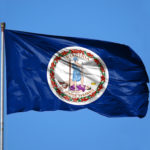 Virginia: Norfolk Circuit Court Judge Everett Martin has ruled in favor of Norfolk Electoral Board Vice Chair Marianne McKay, allowing her to remain in her position. The decision comes after a contentious battle in which fellow board members and the city’s registrar sought her removal, citing accusations of failing to perform her duties in accordance with the law and engaging in political activities. The petition for removal was initiated by Electoral Board Chair Atoy Carrington and Registrar Stephanie Iles. In a hearing before the State Board of Elections in January, both officials pleaded for intervention, with Iles describing the situation in Norfolk’s election office as “toxic” and expressing concern in an email that future elections would be in jeopardy if McKay was not removed. Carrington begged the state board for help. McKay, a Republican appointee to the board, was accused of a series of actions, including seeking to withdraw her certification of the 2024 general election results and using her training to train poll workers through a group called The Election Integrity Committee, which accusers argued was a political activity while performing official duties. The Republican-leaning State Board of Elections voted 4 to 1 to refer the case to Norfolk’s Commonwealth’s Attorney, Ramin Fatehi.
Virginia: Norfolk Circuit Court Judge Everett Martin has ruled in favor of Norfolk Electoral Board Vice Chair Marianne McKay, allowing her to remain in her position. The decision comes after a contentious battle in which fellow board members and the city’s registrar sought her removal, citing accusations of failing to perform her duties in accordance with the law and engaging in political activities. The petition for removal was initiated by Electoral Board Chair Atoy Carrington and Registrar Stephanie Iles. In a hearing before the State Board of Elections in January, both officials pleaded for intervention, with Iles describing the situation in Norfolk’s election office as “toxic” and expressing concern in an email that future elections would be in jeopardy if McKay was not removed. Carrington begged the state board for help. McKay, a Republican appointee to the board, was accused of a series of actions, including seeking to withdraw her certification of the 2024 general election results and using her training to train poll workers through a group called The Election Integrity Committee, which accusers argued was a political activity while performing official duties. The Republican-leaning State Board of Elections voted 4 to 1 to refer the case to Norfolk’s Commonwealth’s Attorney, Ramin Fatehi.
Circuit Court Judge Randall Smith has voided the district-based local election system implemented by the federal courts in 2021. Smith ruled the city acted illegally when it adopted an ordinance in 2023 to codify the 10-1 district system without a corresponding charter change. The 10-district system was in effect for the 2022 and 2024 elections. The results of those elections stand based on the Smith’s ruling this week. The ruling doesn’t immediately offer any way to resolve the conflicting requirements. Any city charter changes in Virginia must be approved by the General Assembly. A change to enshrine Virginia Beach’s district system was approved by Virginia’s House of Delegates and Senate in 2024, but Gov. Glenn Youngkin vetoed the bill. An upcoming voter referendum authorized by the city council may help resolve the matter. Residents will vote in November on whether they want the 10-district system or restore three at-large council seats.
 Wisconsin: A new lawsuit seeking to redraw Wisconsin’s congressional district boundary lines was filed on July 8, less than two weeks after the state Supreme Court declined to hear a pair of other lawsuits that asked for redistricting before the 2026 election. The latest lawsuit brought by a bipartisan coalition of business leaders was filed in Dane County circuit court, rather than directly with the state Supreme Court as the rejected cases were. The justices did not give any reason for declining to hear those cases, but typically lawsuits start in a lower court and work their way up. This new lawsuit’s more lengthy journey through the courts might not be resolved in time to order new maps before the 2026 midterms. The Wisconsin Business Leaders for Democracy argue in the new lawsuit that Wisconsin’s congressional maps are unconstitutional because they are an anti-competitive gerrymander. The lawsuit notes that the median margin of victory for candidates in the eight districts since the maps were enacted is close to 30 percentage points.
Wisconsin: A new lawsuit seeking to redraw Wisconsin’s congressional district boundary lines was filed on July 8, less than two weeks after the state Supreme Court declined to hear a pair of other lawsuits that asked for redistricting before the 2026 election. The latest lawsuit brought by a bipartisan coalition of business leaders was filed in Dane County circuit court, rather than directly with the state Supreme Court as the rejected cases were. The justices did not give any reason for declining to hear those cases, but typically lawsuits start in a lower court and work their way up. This new lawsuit’s more lengthy journey through the courts might not be resolved in time to order new maps before the 2026 midterms. The Wisconsin Business Leaders for Democracy argue in the new lawsuit that Wisconsin’s congressional maps are unconstitutional because they are an anti-competitive gerrymander. The lawsuit notes that the median margin of victory for candidates in the eight districts since the maps were enacted is close to 30 percentage points.
 Wyoming: The Republican National Committee filed a motion in federal court June 26 asking to intervene in a lawsuit challenging Wyoming’s new voter registration law. The new law requires a person to provide proof of state residency and U.S. citizenship when registering to vote. The law will also require someone registering to vote to attest that they’ve lived in Wyoming for at least 30 days. Equality State Policy Center, a voting-rights group, filed a lawsuit in May, alleging the new law will impose an undue burden on the right to vote and is unconstitutionally vague as written. The group has asked the court to prevent the law from going into effect while the case plays out. High-profile attorneys — who have fought for and against President Trump on the national stage — have since flocked to both sides of the case. Plus, a coalition of 25 states and Guam filed a proposed amicus brief Friday, urging the court to allow the law to go into effect. “Wyoming follows four other states — Arizona, Kansas, Georgia, and Alabama — that have taken similar steps to ensure that only United States citizens are registered to vote,” the brief states, before accusing the plaintiff of seeking to “thwart democracy in the name of democracy.” As for the Republican National Committee, “when a state’s election laws are challenged in federal court, political parties should be granted intervention to protect their unique interests,” the group argued in its motion to intervene. If the court grants the request, the RNC would become a defendant in the case alongside Secretary of State Chuck Gray and the state’s 23 county clerks.
Wyoming: The Republican National Committee filed a motion in federal court June 26 asking to intervene in a lawsuit challenging Wyoming’s new voter registration law. The new law requires a person to provide proof of state residency and U.S. citizenship when registering to vote. The law will also require someone registering to vote to attest that they’ve lived in Wyoming for at least 30 days. Equality State Policy Center, a voting-rights group, filed a lawsuit in May, alleging the new law will impose an undue burden on the right to vote and is unconstitutionally vague as written. The group has asked the court to prevent the law from going into effect while the case plays out. High-profile attorneys — who have fought for and against President Trump on the national stage — have since flocked to both sides of the case. Plus, a coalition of 25 states and Guam filed a proposed amicus brief Friday, urging the court to allow the law to go into effect. “Wyoming follows four other states — Arizona, Kansas, Georgia, and Alabama — that have taken similar steps to ensure that only United States citizens are registered to vote,” the brief states, before accusing the plaintiff of seeking to “thwart democracy in the name of democracy.” As for the Republican National Committee, “when a state’s election laws are challenged in federal court, political parties should be granted intervention to protect their unique interests,” the group argued in its motion to intervene. If the court grants the request, the RNC would become a defendant in the case alongside Secretary of State Chuck Gray and the state’s 23 county clerks.
Attorneys for Secretary of State Chuck Gray asked a federal court June 27 to dismiss a lawsuit against Wyoming’s new voter registration law, arguing in two filings that the complaint does not sufficiently demonstrate how the new requirements could harm potential voters. Proof of state residency and U.S. citizenship will be required to register to vote in Wyoming under the new law. The law also requires someone registering to vote to attest that they’ve lived in the state for at least 30 days. Equality State Policy Center, a voting-rights group made up of several nonprofits, filed a lawsuit in May after the Wyoming Legislature passed House Bill 156, “Proof of voter residency-registration qualifications”. The complaint alleges the new law is unconstitutionally vague as written and will impose an undue burden on the right to vote — particularly for women as well as Hispanic, young and low-income voters. The harms described in the complaint, however, are speculative and lack the kind of specificity required to have standing in a federal court, Gray’s attorneys argued in court filings.
Opinions This Week
National Opinions: Executive order | Cyberattacks | 2024 tampering claims | Ranked choice voting | U.S. Supreme Court | Election security | Voting rights
Arizona: Maricopa County | Democracy
Arkansas: Election integrity
District of Columbia: Ranked choice voting
Kansas: Election integrity
Maine: Election administration
Michigan: Ranked choice voting, II
Nevada: Election problems | Voter investigation
New Hampshire: Barriers to voting
New Mexico: Ranked choice voting
New York: Early voting | Ranked choice voting | Open primaries
North Carolina: Election legislation, II | Voter data
Oklahoma: New election laws
Virginia: Ranked choice voting
Wyoming: Election integrity, II
Call For Papers & Proposals
Election Science Conference-within-a-Conference: The 2026 Election Science Conference-within-a-Conference (CwC), co-organized by Lisa Bryant (California State University, Fresno) and Joshua Ferrer (American University), is now open for proposal submissions. The CwC will be part of the Southern Political Science Association (SPSA) Annual Meeting, which will be held January 14-17, 2026 in New Orleans, Louisiana. The submission deadline is August 15, 2025. We hope to elicit broad participation from those focused on Election Law, Election Administration, Election Sciences, State and Local Politics, Voting and Voting Rights, Public Opinion, and Public Administration circles. For this CwC, we invite submissions in all areas of election sciences. We encourage submissions from all scholars, including practitioners, researchers in advocacy organizations, those from underrepresented backgrounds, graduate students, and early career scholars. Proposals can focus on the American electoral context, as well as the international or comparative electoral environments and systems. Possible topics include, but are not limited to: public opinion about elections, election administration and procedures, voter confidence, threats to election officials (and their implications), voter disenfranchisement, voting methods and voter experiences, racial/ethnic disparities in access to registration and voting, changes in election laws and election reform, elite rhetoric in how election results are processed and reported, voter turnout and behavior. The CwC will include approximately 10-12 panels of 4-5 papers each, with all panels likely occurring over 1.5 days for ease of attendance (exact dates and times to be announced later). Panel proposals or roundtable proposals are also welcome. If you are part of an organized panel, all papers should submit individually and indicate they are part of a panel. Per the conference organizers, please DO NOT SUBMIT TO THE SPSA CONFERENCE WEBSITE IF YOU ARE SUBMITTING TO THE CWC. This results in papers being double booked at the conference. Please don’t hesitate to reach out to us with any questions at: lbryant@csufresno.edu (Lisa Bryant) or jferrer2017@gmail.com (Joshua Ferrer).
Upcoming Events
2025 National Association of Counties Annual Conference & Exposition: The National Association of Counties (NACo) Annual Conference is the premier gathering of elected and appointed officials from the nation’s 3,069 counties, parishes and boroughs. Conference content includes discussion of federal policies impacting counties, workshops lifting up county best practices, engaging general sessions, mobile tours across our host county, and more. NACo members also have the opportunity to influence the association’s direction and future during the Annual Business Meeting on the final day of the conference. When: July 11-14. Where: Philadelphia.
Recruitment and Retention: Understanding Poll Workers’ Motivations & Beliefs: Who volunteers to be a poll worker? How do poll workers think about their role? And how might recruiting trusted groups – like veterans and military families – improve trust in elections? Join The Elections Group and The Center for Election Innovation and Research at 1 p.m. ET on Tuesday, July 15, for the second webinar in this summer’s Books & Ballots series, which showcases useful research for election officials from this summer’s Election Science, Reform, & Administration (ESRA) conference. During the conversation, Professors Anita Manion, David Kimball, Matt Lamb, and Michael Hanmer will explore these questions and more as they present and discuss their recent work into the motivations and beliefs of poll workers. This webinar is part of the Books and Ballots series, a partnership with the Center for Election Innovation and Research and Arizona State University’s Mechanics of Democracy Laboratory. When: July 15, 12pm Eastern. Where: Online.
NASED Summer Conference: The National Association of State Election Directors will hold its summer conference in Oklahoma from July 22-24. Please refer to the NASED website for more information and to register for the event.
Voter Registrars Association of Virginia Annual Conference: When: August 3-6. Where: Roanoke.
Election SATs: Security, Accuracy and Transparency: If you’re a leader on elections policy, this NCSL precon is for you. Join with peers from throughout the nation to share the latest on accuracy, security and access to the ballot. We will have sessions on cybersecurity, primaries, funding, cast vote records, campaign finance, election consolidation and post-election audits. When: August 3. Where: Boston
NASS Summer Conference: The National Association of Secretaries of State will hold its summer conference in Biloxi, Mississippi from August 4-7. Please refer to the NASS website for more information and to register for the event.
National Conference of State Legislatures Summit: NCSL is bringing the Legislative Summit back to Boston! Join us Aug. 4-6 to connect with legislators and staff from across the nation at an event jam-packed with great speakers, eye-opening policy sessions and after-hours experiences at some of Boston’s coolest venues. Help NCSL celebrate its 50th anniversary in style. When: August 4-6. Where: Boston
South Carolina Association of Registration and Election Officials (SCARE) Annual Conference and Institute of Government for County Officials: When: August 4-7. Where: Isle of Palms.
Oregon Association of County Clerks Annual Conference: When: August 11-14. Where: Klamath Falls.
Michigan Association of County Clerks 117th Annual Summer Conference: When: August 17-20. Where: Mt. Pleasant.
WMCA Annual Conference: When: August 19-22. Where: LaCrosse.
Election Center Annual Conference: The Election Center Annual Conference will be held in Salt Lake City. The conference will run August 20-22 and CERA courses will be offered August 23 and 24. The CERA courses offered will be: Course 5 (Ethics); Course 6 (Communications & Public Relations); and Two renewal courses to be announced. When: August 20 to 24. Where: Salt Lake City.
Protecting the Election: AI and Governance Conference at WashU: Join us for this two-day in-person research and practitioner conference at WashU on October 16-17, 2025, to discuss research regarding AI and governance and how this applies to U.S. elections. Research topics include how chatbots can be used to engage with voters, how social media influences voters, what the electorate knew (or did not know) about the candidates and issues during recent elections, misinformation in elections, rhetoric about election integrity, and AI strategies for the administration of elections. We will also hear from practitioners during the conferences about their experiences with and needs for AI in recent elections and their intentions for future use of AI in elections. When: October 16-17. Where: St. Louis.
Job Postings This Week
electionlineWeekly publishes election administration job postings each week as a free service to our readers. To have your job listed in the newsletter, please send a copy of the job description, including a web link to mmoretti@electionline.org. Job postings must be received by 5pm on Wednesday in order to appear in the Thursday newsletter. Listings will run for three weeks or till the deadline listed in the posting.
Community Engagement Coordinator, North Charleston, South Carolina– Partner with the Community Engagement Manager to identify and expand non-partisan community relationships. Cultivate connections with local businesses and civic organizations to boost visibility and support. Solicit and analyze community feedback to enhance outreach strategies. Create brochures, flyers, presentations, and digital content to educate the public about elections and voting procedures.Collaborate with the Marketing and Communications Manager to maintain clear, consistent, and timely messaging across platforms. Manage and update the outreach section of the agency’s website. Deliver presentations and training during outreach events. Plan and coordinate mid-scale public events such as National Voter Registration Day and poll worker appreciation initiatives. Represent BVRE at outreach events, tabling opportunities, and community meetings. Track outreach activity and report on engagement metrics and outcomes. Support special projects including the “I Voted” sticker contest, Adopt a Polling Location, and poll worker recruitment. Research best practices to enhance and expand outreach programming. Assist in maintaining a centralized repository of outreach materials and resources. Salary: $50,440 – $66,060. Application: For the complete job listing and to apply, click here.
Election Analyst, Charleston County, South Carolina– Are you a detail-oriented professional with a passion for public service and a knack for technology? Join us as an Election Analyst and play a vital role in ensuring the security, efficiency, and accuracy of elections in our community. At the Board of Voter Registration and Elections, we are not just managing elections—we’re shaping the foundation of democracy. As an award-winning office known for our commitment to excellence and innovation, we invite you to be part of a team that is redefining what it means to serve the public. Our mission is to daily serve the Charleston County voting constituency with Vigilance, Objectivity, and Transparency in a manner that promotes due diligence Excellence in all aspects of Elections Management. Why Join Us: 1. Trusted Stewards of Democracy: We lead the way in secure, accessible, and transparent elections, earning statewide and national recognition for our performance. 2. Frontline Impact: As an Election Analyst, your work will directly impact how voters experience democracy—from the reliability of equipment to the confidence in results. 3.Culture of Innovation: We’re constantly improving election systems, training programs, and precinct operations to ensure our voters get the best experience possible. Salary: $45,052 – $58,988. Application: For the complete job listing and to apply, click here.
Election Office Manager, Fairfax County, Virginia – Responsible for the hiring, onboarding, precinct placement, and overall management of election officers (poll workers) for all elections in Fairfax County. The ideal candidate will bring strong interpersonal and problem-solving skills, confidently navigate complex personnel matters, and demonstrate advanced technical abilities to support and improve data-driven operations. Manages a team of 1.5 full-time staff and 4 seasonal staff to ensure all election officer tasks and related election activities are completed in an efficient and timely manner each election. Ensures adequate staffing at 265 voting precincts each election from a pool of approximately 5,000 active election officers, taking into account legal requirements for party balance and bilingual needs. Oversees staff who conduct onboarding and paperwork completion appointments with new election officers. Oversees staff responsible for assigning election officers to polling places based on availability, training, and experience.Crafts clear, timely, and effective written communications to election officers, including large-scale messaging before, during, and after each election. Ensures that communications are accurate, actionable, and appropriately tailored to the audience. Coordinates with the HR Manager on hiring, terminations, and payroll processing spreadsheets to ensure election officers are paid promptly and accurately. Collaborates with the Training & Operations Manager on the development of election officer training standards, schedules, materials, and evaluations for in-person and online formats. Demonstrates strong technology skills, including the ability to manage large and complex spreadsheets of election officer information. Designs and refines spreadsheet formulas to support effective tracking and analysis of election officer data. Learns and applies new software tools with ease and uses strong technical skills to build and improve internal systems (e.g. creating custom forms, databases, and automations in platforms like Airtable and Power Automate) to streamline election officer scheduling, communication, and recordkeeping. Proactively promotes the safety and well-being of election officers, especially on election day. Identifies and mitigates potential risks or liabilities related to staffing, polling place conditions, or communication breakdowns. Applies sound judgment in handling sensitive HR matters, including performance management, attendance concerns, and interpersonal conflicts among election officers, in coordination with HR and leadership staff. Develops and maintains detailed timelines, plans, and reports to support and document election officer processes. Maintains accurate and up-to-date records of election officers, including contact information, availability, and training status. Communicates polling place assignments, duties, and schedules to election officers, and ensures they are properly trained and prepared for their roles. Develops contingency plans for staffing changes or emergencies, such as last-minute cancellations or shortages. Assists in resolving election day issues, including staffing gaps or technical problems, and provides real-time support to election officers. Monitors and evaluates election officer performance and provides feedback to improve effectiveness. Serves as the primary point of contact for election officers and oversees staff responses to their inquiries, concerns, and feedback. Travels as needed to training sites, the voting equipment warehouse, or polling places. Maintains up-to-date knowledge of, and ensures compliance with, federal, state, and county laws, regulations, and policies related to election administration. Participates in other duties as required to support the administration of elections and voter registration in Fairfax County. Salary: $58,529.74 – $97,548.88 Annually. Deadline: July 11. Application: For the complete listing and to apply, click here.
Election Specialist, Candidate Services, Palm Beach County, Florida– This position is responsible for the management and execution of services provided to candidates, political committees, electioneering communication organizations, political parties, community development districts, and special taxing districts. This includes establishing and maintaining an organized system for managing the required forms and records associated with filing and qualifying for office, candidate petitions, campaign finance reporting, financial disclosures, initiative petitions, and other related activities. Candidate Services staff must be organized and personable with a great attitude, be able to work well in a team environment, and meet deadlines under pressure. Excellent work ethic, including consistent performance, integrity, reliability, and attendance, is a must. Must be detail-oriented, be able to handle simultaneous projects, and be a self-starter. Salary: $21.63 – $24.04. Application: For the complete job listing and to apply, click here.
IT Assistant Manager, Palm Beach County, Florida– The Assistant IT Manager plays a supportive role in the smooth operation of the IT department, ensuring that both the technical infrastructure and the team are aligned with the organization’s goals. This position involves collaborating closely with the Election Technology Director to oversee the implementation of technology solutions that meet the needs of the organization. The Assistant IT Manager helps maintain an efficient and effective IT environment. Oversee daily operations of the IT department, including help desk operations and performance, troubleshooting issues, and ensuring efficient workflow. Hold department meetings and provide weekly performance summary. Manage IT projects under the direction of the Election Technology Director, ensuring timely completion, budget requirements, and organizational needs. Enforce IT policies and procedures to ensure data security, network access, and system availability. Assist in the management of IT staff by developing skills, coaching, and communicating job expectations. Coordinate vendor renewals, assist with IT budget development, and manage grant applications. Evaluate and assist in maintaining the organization’s disaster recovery and business continuity plans for IT. Assist with IT Public Records requests research and fulfillment. Assist the Election Technology Director in all facets of IT operations. Lead projects and mentor team members. Application: For the complete job listing and to apply, click here.
Physical Security Specialist, Palm Beach County, Florida– This position is responsible for administration of the physical security programs in a manner consistent with Supervisor of Elections Office policies, procedures, quality standards, and applicable local, state, and federal regulations. These programs include conducting facility security risk assessments, assisting with access control, monitoring alarms and CCTV systems, and providing security related training. Must be organized and personable with a great attitude, be able to work well in a team environment, and meet deadlines under pressure. Excellent work ethic, including consistent performance, integrity, reliability, and attendance, is a must. Candidate must be detail-oriented and understand the importance of security and safety for all. Must be available 24/7 365, be able to handle simultaneous projects, and be a self-starter. Application: For the complete job listing and to apply, click here.
Senior Campaigns Manager, Common Cause– We are seeking a dynamic and detail-oriented Senior Campaigns Manager to serve as the critical link between campaign strategy and grassroots execution. This role will work closely with the Senior Director of Campaigns to translate high-level campaign goals into actionable plans, while partnering with the Organizing team to ensure strategies are powered by strong grassroots participation. The Senior Campaigns Manager will focus on implementing tactics, mobilizing supporters, and aligning campaign timelines with organizing capacity to win democracy reforms. They will also work collaboratively with States, External Affairs, Policy and other teams to advance campaign goals under our four organizational pillars: Voting and Fair Representation, Anti-Corruption and Accountability, Media and Technology, and Civil Rights and Civil Liberties. This is a full-time role reporting to the Senior Director, Campaigns and is remote anywhere within the lower 48 United States with up to 30% travel around the country to support state campaigns and coalition efforts. We hope our new Senior Campaigns Manager will start in August. Salary: $97,850 – $113,300 a year. Application: For the complete job listing and to apply, click here.
Senior Elections Supervisor, Placer County, California– The Placer County Clerk-Recorder-Elections Office has a current vacancy for a Senior Elections Supervisor. The Office is looking for someone with experience in the development, supervision, and administration of elections programs. The ideal candidate will have supervised in an elections office or similar agency that emphasizes cooperation, accountability and transparency and has the ability to communicate effectively with management, staff, other county departments, jurisdictions and the voters of Placer County. To learn more about the Elections Division of the Clerk-Recorder-Elections Office please click here. In addition to the minimum education and experience, the ideal candidate will possess experience and vision in the following areas: State and federal election laws; Voting systems; General operating policies and functions of the California Secretary of State’s Office; Best practices and current trends in successful election administration, community education and outreach programs; Principles and techniques of effective employee supervision and development, training, management practices and public administration. Salary: $69,056.00 – $86,195.20/year. Application: For the complete job listing and to apply, click here.
Senior Organizer, Georgia, Common Cause– We are seeking a proactive and collaborative Senior Organizer to join the Common Cause team in Georgia. This role is critical in growing and diversifying our base of supporters, building partnerships, and driving civic engagement across Georgia. The Senior Organizer will also play a key role in coordinating grassroots actions, supporting policy advocacy efforts, and coordinating volunteers. This is a full-time role reporting to the Executive Director, Georgia, and is based in Georgia, with an expectation to travel around the state up to three days per week. We hope our new Senior Organizer will start in September. Salary: $72,100 – $89,610 a year. Application: For the complete job listing and to apply, click here.
Voter Registration and Absentee Manager, Charleston County, South Carolina– Are you driven by public service and committed to ensuring the accuracy of voter registration? Join us as the Voter Registration and Absentee Manager and lead a team dedicated to upholding the integrity of our processes. Welcome to the Board of Voter Registration and Elections, where we are not just an agency, but a dynamic force committed to excellence in democracy. As an award-winning organization, we pride ourselves on our relentless pursuit of improvement to better serve the voters in our community. This role is pivotal to ensuring secure, accurate, and accessible voter registration and absentee voting services. Salary: $70,000.00 – $82,000.00 Annually. Application: For the complete job listing and to apply, click here.
Voter Services Clerk, Seminole County, Florida – The Voter Services Clerk serves as the primary customer service representative for the Seminole County Supervisor of Elections Office. This position is responsible for the accurate maintenance and entry of voter registration information, ensuring the integrity and confidentiality of voter data, and providing essential assistance to voters, including answering inquiries and processing voter-related documents. The Clerk will also be involved in various clerical and administrative tasks associated with voter services, ensuring compliance with applicable state and federal election laws. Responsibilities include processing new voter registrations, updates or changes to existing registrations, vote-by-mail ballot requests, and returns, as well as petition verifications and other voter record-related tasks, providing accurate voter registration and election information to the public in person, by phone, or via mail, in accordance with Florida state laws, regulations, and procedures, conducting research to resolve issues related to voter registration records, utilizing sources both within the voter database and external government websites or online resources, ensuring the accuracy and completeness of voter registration records by verifying information, validating signatures on candidate and initiative petitions, maintaining and update street maintenance files to ensure an up-to-date and accurate residential address database for Seminole County. Salary: $17 – $22 Hourly. Application: For the complete job listing and to apply, click here.
Marketplace
electionline provides no guarantees as to the quality of the items being sold and the accuracy of the information provided about the sale items in the Marketplace. Ads are provided directly by sellers and are not verified by electionline. If you have an ad for Marketplace, please email it to: mmoretti@electionline.org